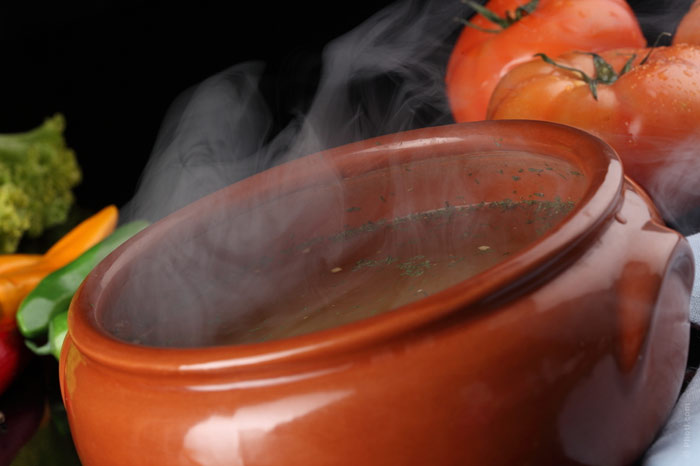We are so used to coughing that we seldom give it a second thought. Why do we cough? Because something is irritating our airways, and it is the simplest way to try and get rid of it. Airway nerves react to many irritants like some medicines, certain medical issues, allergens, and lots of other things. Then, air is ejected from the lungs forcefully.
Therefore, coughing is basically normal. It removes irritants and excessive phlegm. But if you cough constantly and it puts you off going about your routine business, this may be a medical matter.
In some cases coughing isn’t caused by lung condition. There are diseases that can bring on cough, for one, gastroesophageal reflux disease, or GERD.
If you cough because of colds, sinus problems or allergies, it can be put down easily by carefully chosen medication. If it is caused by bacteria, antibiotics will be the best cure. For those who shun chemical medicines, here will be traditional home-made cough remedies.
Dry coughing may be indicative of excessive smoking; it is produced by colds, flu, acid reflux, ACE inhibitor medications, and, of course, various allergies.
Wet coughing can be brought on by flu viruses, colds, or COPD – chronic obstructive pulmonary disease.
Coughing can be regarded as incessant (chronic) if it stays on after three weeks; it is often symptomatic of asthma, bronchitis, lung and heart diseases.
Cough-soothing treatment
Make sure your home is free of possible irritants – incense, perfumes, toilet fresheners, strong-smelling detergents.
Suppose you know the reason for your coughing, and it is not a grave medical issue. Then you can address the bothersome state using home remedies. If you take any medicines, consult the doctor to see if they won’t interact adversely with remedies and supplements you are going to take for the cough.
Lay off smoking and be on the lookout for second hand smoking.
Have water often, it makes mucus thinner.
Besides water, mucus can be thinned by apple cider vinegar: dilute it or mix in some honey.
Use hot steam. The simplest way is to arrange a long hot shower and inhale deeply. Or else, take a bowl of boiled water, arrange a long towel on your head to prevent steam escaping, and do some deep breathing. Keep your face a foot or so from the surface to avoid burns.
As soon as you feel any discomfort, desist.
Also, if you have asthmatic cough, never attempt this: steam can make you feel worse.
Humidifier goes to loosen mucus, give it a try.
Other ways to break up lung mucus are mint, drunk infused as tea, and eucalyptus oil, rubbed over the chest or used in a vaporizer.
Throat mucus is removed by gargling salted water.
Bad throat can be soothed by sucking at lozenges or special drops – but they are for adults only.
Honey is great for soothing.
Ginger tea is good for inflammation in the throat.
Keep your head high during sleep with a bigger pillow.
A herb used for treating respiratory problems is thyme. You can get thyme essence; when mixed with ivy, it is used to cure light cases of bronchitis and relieve non-chronic cough. Thyme leaves carry flavonoids, they help ease up throat inflammation and let muscles relax thereby relieving coughing. Crush a few thyme leaves, scoop 2 teaspoons, put into 1 cup of boiled water, stir and cover it. Wait for about 10 minutes, then strain.
Keep away from dust, pollutants, they are irritants.
Lozenges often contain menthol that is good for easing up a cough.
If you need an expectorant, try licorice root.
Sore throat responds to treatment by marshmallow. In Latin it is called Althaea officinalis, being a perennial summer-flowering plant. Its leaves and roots have been used of old for inflammated throat and bad cough due tot he contents of a compound known as mucilage. It coats the walls of the throat, preventing irritation. You can find marshmallow tea or get the herb in capsules. Take warm tea for a soothing effect and lighter cough. But it is another remedy for adults.
For soothing and throat coating also use slippery elm.
Keep in mind probiotics – these microorganisms don’t address cough, true, but they are so good for health that they help with a cough, too. They work towards balancing gastrointestinal flora in particular and strengthening the immune system in general. Consequently, it helps resist flu and diminishes vulnerability to pollen and other allergens.
If you keep coughing because you have GERD, try turmeric for bettering the digestive system.
Those who suffer from upper respiratory tract infection can relive symptoms taking chicken soup.
Have you ever thought of treating cough with pineapple? Well, it is worth trying! Pineapple fruits (and stem) contain the enzyme bromelain that is instrumental in loosening mucus and getting rid of cough. To get the best of bromelain, take three slices of pineapple or about 10 ounces of its fresh juice daily.
And, finally, enjoy a bar of chocolate! Chocolate’s theobromide is known to suppress the activity of the vagus nerve and thereby reduce coughing.
Ways to prevent it and save yourself further trouble
Instead of worrying yourself thin treating a cough, why not take a few preventive measures? Talking about flu, first of all remember to get a flu shot every year, generally around October.
Some other helpful measures:
- Stay away from sick colleagues and pals. If you fell ill, don’t get around so as not to pass on the infection to other people.
- When you feel like coughing or sneezing, cover your lower part of the face, best of all with the elbow and not with a hand.
- Drink a lot during the day to prevent dehydration.
- Regularly clean the areas which are used by other people, at home, in the office, at school; pay special attention to desktops and smartphones.
- Make a point of washing your hands after bathroom, meals, after coughing or sneezing, or helping sick people.
- If it is an allergy, first of all indentify what it is you are susceptible to and exclude contact with the triggering object. Look out for allergens like plants and trees, animal fur, insects, dust mites, and mold. Subdue your sensitivity by getting allergy shots. If the condition is bad enough, discuss preventive measures with your doctor.










